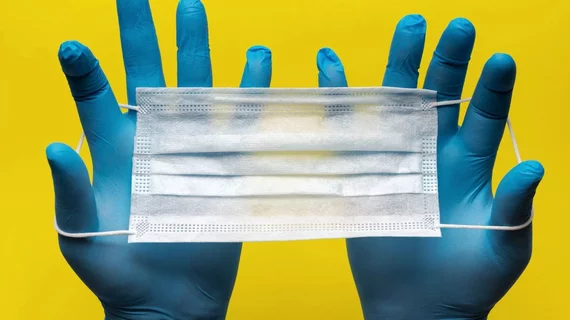Imaging advocate reminds patients and providers to check for metal in masks before MRI exams
The Medical Imaging & Technology Alliance is reminding patients and providers to make sure there is no metal in masks being worn during MRI exams, the imaging advocate warned on Friday.
On Dec. 7, the U.S. Food & Drug Administration issued a safety notification warning patients not to wear face masks with metal parts during MR imaging after it received a report of an individual’s face being burned. MITA recently sent out an email to remind doctors and patients to check for small metallic parts before such exams.
“The COVID-19 pandemic impacts the way diagnostic imaging examinations are performed,” MITA said in its statement. “The U.S. FDA issued a safety notification to remind patients and providers not to wear any metal during the MR examination. MITA fully supports this reminder and reinforces the instructions for use with MR systems.”
Furthermore, clothes should be checked for metal pieces and strips of woven microfabric material prior to MRIs. MITA recommends using hospital-supplied gowns and masks in all instances and to check with mask manufacturers to ensure no metallic nanoparticles or material is embedded into masks.
It all started after the FDA received an official injury report detailing how a patient wore a face mask with metal during a 3 Tesla neck scan. That person sustained burns consistent with the shape of a mask, according to the federal health organization.
Should a burn occur, doctors are encouraged to immediately report the injury to the FDA to help improve its patient safety measures.
Read the FDA’s entire safety guidance here.

